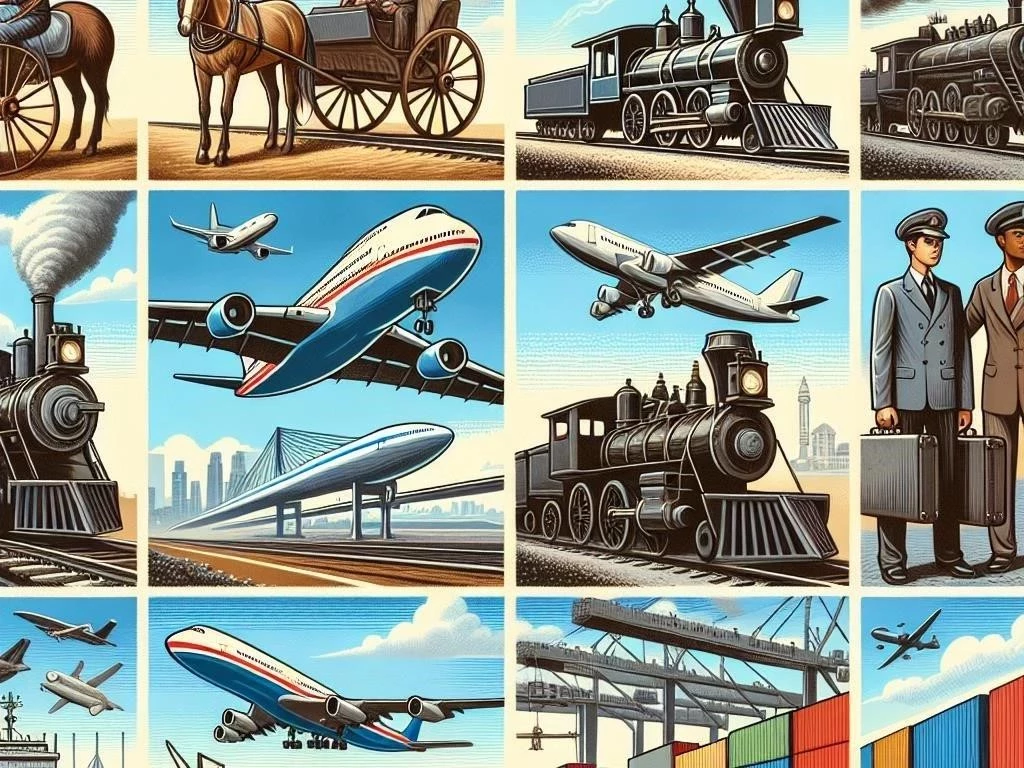Overview of the Transportation Industry
The transportation industry encompasses various companies, including logistics companies, shipping firms, trucking companies, air cargo operators, railway operators, and public transit providers, facilitating movement.
Importance of Transportation in Modern Economy
The transportation industry is vital for economic growth, facilitating trade and commerce. Companies in this field, such as logistics companies and shipping firms, optimize supply chain management. Efficient public transit and delivery services enhance urban mobility. Moreover, trucking companies and air cargo operations ensure timely cargo handling, while railway operators and maritime transport contribute to robust transport networks, boosting overall productivity and connectivity.
Key Components of the Transportation Industry
The transportation industry comprises various essential components, including vehicle manufacturers, logistics companies, and shipping firms that facilitate movement. Additionally, trucking companies and air cargo operators play crucial roles in freight services. Public transit systems and commuter services enhance urban mobility, while railway operators and maritime transport ensure diverse transportation solutions. Together, these elements create a comprehensive network that supports economic activity and connectivity.
Types of Transportation Companies
Transportation companies include logistics firms, shipping businesses, trucking operators, air cargo services, railway providers, maritime transport companies, and public transit organizations, each specializing in unique services.
Logistics Companies and Freight Services
Logistics companies are integral to the transportation industry, offering comprehensive freight services that streamline supply chain management. These companies coordinate shipping logistics, ensuring efficient cargo handling and timely deliveries. They work closely with trucking companies and air cargo operators to optimize routes and reduce costs. Additionally, logistics providers leverage transportation technology to improve tracking, inventory management, and customer service, enhancing overall operational efficiency.
Shipping Firms and Maritime Transport
Shipping firms play a crucial role in the transportation industry, providing vital maritime transport services that connect global markets. These companies specialize in cargo handling, ensuring efficient loading and unloading of goods at ports. By utilizing advanced vessels and logistics solutions, shipping firms facilitate intermodal transport, enabling seamless connections with trucking and rail services. Their operations significantly contribute to international trade and economic growth.
Role of Public Transit and Commuter Services
Public transit and commuter services are essential components of the transportation industry, provided by various companies that enhance urban mobility and facilitate passenger transport efficiently.
Public Transit Systems and Urban Mobility
Public transit systems are vital for urban mobility, operated by various companies that provide bus, subway, and light rail services. These organizations enhance accessibility, reduce traffic congestion, and lower environmental impact. By promoting efficient passenger transport, they contribute to sustainable urban development. Integrating technology into operations, public transit firms improve scheduling, fare collection, and real-time information, ensuring seamless travel experiences for commuters.
Ride-Sharing Services and Their Impact
Ride-sharing services have transformed the transportation landscape, offering convenient alternatives to traditional taxi services. Companies in this sector utilize apps to connect passengers with drivers, enhancing urban mobility and flexibility. By reducing the need for personal vehicles, these services help alleviate traffic congestion and lower emissions. Additionally, ride-sharing promotes efficient use of existing transport networks, contributing positively to overall city transportation dynamics.
Freight and Cargo Transportation
Freight and cargo transportation involves various companies, including trucking firms, air cargo operators, and railway operators, each specializing in moving goods efficiently and reliably.
Trucking Companies and Air Cargo Operators
Trucking companies are essential for ground freight transportation, offering flexible delivery options tailored to diverse cargo needs. They work alongside air cargo operators, who provide rapid shipping solutions for urgent shipments. Together, these companies ensure seamless logistics by efficiently managing routes and schedules. The collaboration between trucking and air cargo services enhances supply chain management, enabling timely deliveries and supporting global trade across various industries.
Railway Operators and Intermodal Transport Solutions
Railway operators are vital in the transportation industry, providing efficient long-distance freight services. They often collaborate with logistics companies to implement intermodal transport solutions, combining rail with trucking or maritime services. This approach optimizes cargo handling and reduces transit times. By utilizing different transport modes, companies enhance supply chain management, improve sustainability, and lower costs, ultimately benefiting industries reliant on timely deliveries.
Emerging Trends in Transportation Technology
Emerging trends in transportation technology include advancements in fleet management, automation in logistics companies, innovative delivery services, and enhanced connectivity across transport networks and solutions.
Fleet Management and Infrastructure Development
Fleet management companies play a crucial role in optimizing vehicle utilization and maintenance across the transportation industry. They leverage advanced technology to monitor performance, reduce operational costs, and enhance safety. Meanwhile, infrastructure development firms work alongside transport operators to create and maintain essential facilities like ports, terminals, and roadways. Together, these companies ensure the efficient movement of goods and passengers, supporting economic growth and sustainability.
Future of Transport Networks and Delivery Services
The future of transport networks is set to be revolutionized by advancements in transportation technology and innovative delivery services. Companies are increasingly focusing on automation, artificial intelligence, and data analytics to enhance efficiency. Integrating diverse transport modes, including ride-sharing and air cargo, will create seamless logistics solutions. As urban mobility evolves, companies must adapt to changing consumer demands and sustainability goals, ensuring effective connectivity.














Post Comment